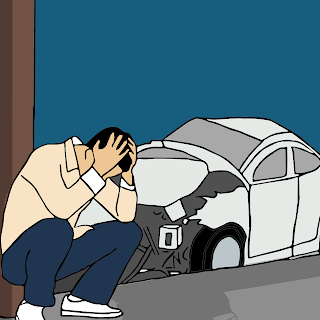APPROACH TO LIABILITY INSURANCE FOR SMALL BUSINESS GROWTH AND RISK MANAGEMENT
 INTRODUCTION: Having a small business is a start to financial freedom and expansion. it looks far much better than just a dependent or a liability to someone, having so much depend on someone for every of your needs and sometimes become a burden to themselves seek a greater and better chances to explore our ideas, skills and opportunities and therefore opening a small business is a great platform to do so in testing those skills.
INTRODUCTION: Having a small business is a start to financial freedom and expansion. it looks far much better than just a dependent or a liability to someone, having so much depend on someone for every of your needs and sometimes become a burden to themselves seek a greater and better chances to explore our ideas, skills and opportunities and therefore opening a small business is a great platform to do so in testing those skills.
Some may say that the reason why so many people open small business is the fact that they couldn’t afford large ones but I totally disagree because one of the advantage of starting with a small business is that you tend to know what area you are good if you know how to develop your kills (sales method), profit realization and risk management. So in starting up a small business doesn’t always seem lack of start-up capital. in this article, we shall be discussing how you can take up a liability insurance for that your small business, loan utilization, risk management as pertain to your small business. Like I said in previous articles that insurance is very essential in every sector of life like health, travel property, life and so many others, we are going to be seeing some of the advantages benefits, necessity and disadvantages up a liability for your small business and also will be included useful tips to help why it shouldn’t be necessary just yet to take up a liability insurance for that your small business but first:
1 WHAT IS LIABILITY: we have mentioned a couple of times the term liability. According to Investopedia “liability is defined as a company’s legal financial debts or obligations that arise during the course of business operations, liabilities are settled over time through the transfer of economic benefits include money, goods, or services” in other words, Investopedia is saying that liability has to do with the financial state of being responsible for something.
As in most cases but in other cases it could be services owed to other party probably your clients leads in other services or others who you are liable to when a business is in liability (financially or by services) to others it refers to the situation where the company or business is subjected to income deduction after profit to arrive at a net profit and also services to be rendered which possibly might involve cost in carrying such services. Liabilities are very important aspect of a company because they are involved in the financial operations in the company or business and also pay for large expansions “in simpler term we can say liability is debt to a business either in financial or service aspect”.
Do note that there is a difference between liabilities and expenses where expenses is the cost of operation as a company or business tries to generate income but due to loss in sales, or mis-management of capital and any other factor could have led to liability of the business.
2 WHAT IS INSURANCE: Insurance is simply an arrangement by which an insured transfers his risk (uncertain tendency to loss) to the insurer at an adequate fee called a premium, on promise that the insured will be indemnified or compensated upon the occurrence of the insured event. Incase of financial loss, insurance serves as a means of protection and risk management. In other words, insurance is a contract between the insurer and the insured where the insured receives an insurance policy which involves the conditions and situations under which the insurer will compensate the insured when any of such arises.
In this policy also is a stipulated amount the insured will pay to the insurer for coverage depending on the policy taken I called a premium. In general insurance serves as a protection for un-forseen or un expected events that my occur to someone (insured) thereby transferring the risk of uncertainty to the insurance company (insurer) who promises to do such as contained in the insurance policy which will be taken up by the insurer and a certain amount will be paid by the insured called the premium.
Read more on Premium
3 LIABILITY INSURANCE: Having discussed briefly about “liability” and “insurance”, fusing this two keywords together “liability insurance” we will agree that liability insurance should mean a kind of insurance policy that ensures that liability of the insured are taken care of by the insurer through premium paid by the insured. Liability insurance is pain, loss, injury you caused on someone through your property. Liability insurance is mostly designed to cover specific protection against third party insurance claims that is in case of any accident; injury or loss, the insurance company (insurer) will take up or pay off every damage you cause on someone.
Please take note that incase of accident you as he at-fault party is not been taken care of rather the person/victim of the situation, most times you can be sued for claims when any injury or damages occur so it is best to own a liability insurance and most especially when you are a car owner.
For further understanding of liability insurance, it has been treated in one of our articles. Liability Insurance
4 SMALL BUSINESS: We need not to buttress so much on this point because with its word ‘’small business” we should know what it means but for the sake of it, according to Wikipedia“small business are privately owned corporations, partnerships, or sole proprietorship that have fewer employees and or less annual revenue than a regular sized business or corporation. Small business ranges from 2-50 employees”. In many countries small business are regarded as business that include services or retail operations like:
1 Convenience stores
2 Grocery stores
3 Bakeries
4 Hair dressers
5 Traders
6 Guest houses
And more also several professional operations as:
1 Accounting firms
2 Lawyers firms
3 Medical doctors (but these set of people can also work for large companies)
Small business are corporations or sole proprietorship and are limited by:
1 size
2 number of employees
3 Activities and so on….
THE CONCEPT LIABILITY INSURANCE FOR SMALL BUSINESS
Have you ever been indebted to someone or group of persons financially and unable to clear off those debts, its awful I guess, you tend to look frustrated and seek better and faster ways to come out of this debt, that’s why you should consider having a liability insurance for that your business.
Liability insurance helps protect your business from claims that will lead to the negative growth of your business and thereby affect your normal business operations. Liabilities of small or large business could include:
1 Advertising injuries
2 third party bodily injuries
3 sales injuries
4 Loan
5 medical payments for employees
A small business could be liable and sued for any of the above mentioned and compensation will have to be paid as long as you as the business owner is at fault but in a cause where you take up a liability insurance, the insurer provide coverage for this and relieve you of out-of-pocket expenses. This policy also provides compensation for defending or investigating a lawsuit, police report, cost of witness fees, any judgment or settlement resulting from the lawsuit filed against you or your business and court cost including attorney’s fees.
A liability insurance business covers you for a situation like coming into contact with the public on your property or elsewhere, do you have any business dealing with the public like offering services then you need a liability insurance for your business. In essence we are saying that having a liability insurance give you the confidence of going through your daily business activities in confidence knowing full well that you are covered by any unforeseen or unexpected events, you will also be needing employers liability insurance for your business.
In most countries of the world, liability insurance (public) is not compulsory for your business by law but people most times decides that it is very important that they opt in for it because it protects them from compensation cost and also satisfy the needs of their clients as it can protect you when someone tries to sue you so you need it, in simpler way we could say if you do come in contact with the public, interact with customers, suppliers or passersby in carrying out your work then you may decide to go for liability insurance cover. Having wondered if you should take up this cover or not is totally depended on you, if you can afford to meet up with the cost of compensation claim when you are sued and don’t have a cover then you could just ignore having liability insurance.
TYPES OF LIABILITY INSURANCE
There a different types of Liability insurance that you could opt in for depending on your needs or you could just decide to have the whole of liability coverage depending on your pocket and your needs but here are different type of liability insurance cover:
1 Product liability
2 Professional liability
3 Public liability
For further understanding visit types of liability insurance
Many at times we come across certain things we do not expect and thereby give us a cause to worry about and most especially these things likely reduce our finances. You are a business owner and don’t have a liability insurance for your business that may be due to the fact that you don’t need it or ignorant of it, but in our article so far we talked much about liability insurance for your small business but these are also helpful tips that you should go through for better understanding, here and now we shall be highlighting some of the advantages (pros) and disadvantages (cons) of having a liability insurance for your small business:
ADVANTAGES OF LIABILITY INSURANCE FOR YOUR SMALL BUSINESS
1 It offers protection for your business: liability insurance offers protection for your small business in a way in which any form of unforeseen or unexpected circumstances happens then you will be covered. For example, you are into transport business (moving people from one destination to another) for every passenger in your vehicle, you are liable for its safety till he/she gets to her destination, so if an accident occurs within this period, you are liable to cover the expenses such as injuries, medical bills and any other expenses that may quickly rise up.
2 It helps defend you and your business against claim: Have thought of your clients or customers suing you for damages you never expected could have happened, if such occurs some may try to make a compensation claim then surely you will need a legal assistance in order to assist or defend your case and for sure this could be costly. Okay finally you were successful in the case, have you thought about the legal fees in which you know your small business will not be able to meet up, so having liability insurance for your businesswill ensure that your business is totally covered if anything of such occurs. In other words, to be specific you need a public liability insurance and this will cover all legal fees, loss of earning repairs of damages or injuries and any other inconveniences that might have occurred to you or your business.
3 it helps you out when you are financially down or broke: this means that certain events or circumstances might occur at a time when you are not financially capable to cover up those expenses immediately but having a liability insurance cover for your business could put you out of this stress and worry.
4 Having confidence running your business: have you ever considered running your business in full confidence that no matter what happens you are covered as long as it relates with you, your business and your clients/customers! Then this is what public liability does to you and your business. Since you have taken up a cover for any circumstances that might occur in the cause of running your business then you are confident about running your business and carrying out your daily activities but that does not mean you should create avenue for people to get endangered in your business but rather when you do this you are actually killing your business by decreasing your business patronage, increasing your expenses. Have it in mind that an insurance which decides to cover up your cost is not done for free but on your premium which you pay monthly, quarterly, yearly, or whole sum whichever way you decide to.
5 This insurance policy can actually cover you for your business loan: if you have taken up a loan to help boost your business or clear debts whatever the case may be, you could actually run into bad debts in the cause of doing this, then you should take up a liability insurance for this purpose.
For better understanding on this read “insurance as a tool for loan utilization”
TIPS: When taking up this type of coverage try as much as possible to go through all the benefits or advantages that is been stipulated in the policy and have a knowledge about it in order for you to measure it with your business needs depending on your activity but this kind of insurance policy should/must cover the above mentioned advantages and benefits which have been explained in this article.
Where there is an advantage, there should also be a disadvantage(s) even if not much, here are few disadvantage of this policy.
DISADVANTAGES OF TAKING UP LIABILITY INSURANCE FOR YOUR SMALL BUSINESS
1 Kind of activity(ies) involved in running your business: if you are the type of business person that involve in hazardous activities or communal action then this coverage will not over you of such.
2 Most times claims are slow because the insurance company needs to assess the damage and possibly determine the accurate and precise loss and this could take a long time and sometimes after all this the insurance company mat decide not to pay for the claims giving you reasons and excuses. (but you could file a case in court).
3 In general term, insurance is expensive and most times your small business may not b able to meet up with its premium.
4 Some insurance company only pays out money up to a certain amount after which you will have to pay the differences but there must be a payout eventually.
WHEN IS JUST NOT YET TIME TO TAKE UP LIABILITY INSURANCE FOR YOUR BUSINESS
So far so good we have talked about liability insurance for your small business, types, benefits, advantages, and also disadvantages, as we have seen in this article that there are a lot of benefits and advantages you could actually get if you take up a liability insurance for your small businessbut you also might want to consider the disadvantages as regards the cost of insurance, the type of activity you carryout in the cause of running your business and also method of payments of a claim but in essence all this should not discourage you as I can rightly tell you that taking up a liability coverage is very important for that your business.
Irrespective of this “when is just not yet time to take up liability insurance for your small business” is what I will explain to you but why you should take up this liability insurance are the advantages and benefits which have been explained here.
1 Now, have you considered the income of your small business especially when you are still at the start up level or grassroots level, probably your business has not been generating much to start paying on huge premium for insurance coverage
then taking up this coverage could directly or indirectly affect your business? So if you are at the beginner’s level then you might not want to consider an insurance policy just yet.
then taking up this coverage could directly or indirectly affect your business? So if you are at the beginner’s level then you might not want to consider an insurance policy just yet.
2 If your activities do not directly deal with clients/customers or you don’t closely come in contact with them then a liability insurance cover may just not be the right time.
Read also Third party insurance
3 I bet you most times you don’t want to go through the hassles of making a claim. Some insurance company can be pretty difficult when trying to payout a claim, so this could also discourage you from taking up a over.
4 Your business environment is also a factor that could help or force you to take up an insurance cover for your business, let’s say you have a quiet, calm, serene and easy going business environment where customers/clients are always careful and cautious of doing things then you might not just yet consider taking up a liability insurance cover but what happens if someone gets injured, or property damaged by you or your business activity and claims are been made against you then you need a cover for it.
In essence am saying that you might not want to take up liability insurance if you are familiar with your business type, people/customers/client very well and understand how your environment would work for you.
In conclusion, I would say try as much as possible to take up an insurance cover for your business, it is not necessary you take up the whole of liability insurance coverage but you could just study and understand what you need, dangers ahead in your business on people that’s your customers, property and employees and pick a specific liability insurance cover for your business and you should also take note of different insurance premium of different insurance company as it differs from state to state and country by country and do your thorough research.
We have listed some types of liability insurance cover and a link for better understanding that you could take for your business but if you didn’t get that, here is another types of liability insurance and feel free to drop your comments on what you think about this article.
HOPE IT HAS HELPED YOU IN ONE WAY OR THE OTHER????
















Search This Blog
Socialize